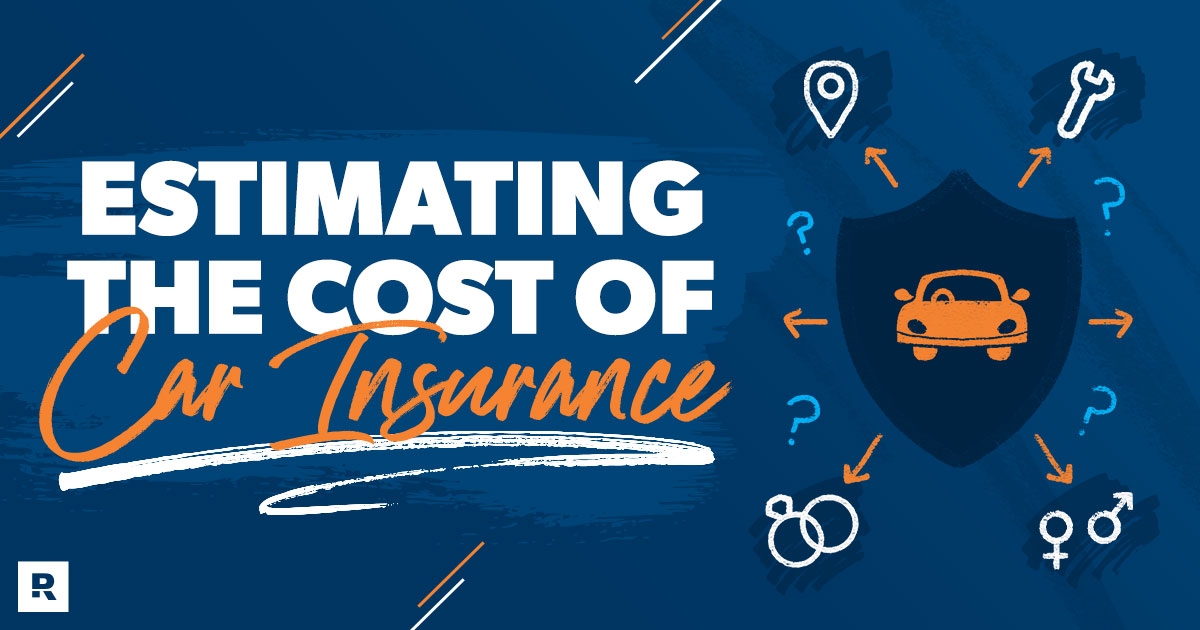How to Estimate Car Insurance Costs Before You Buy a Car
8 Min Read | Nov 26, 2024

Imagine you’ve got your eye on a swank, gently used car that’s exactly the make and model you’ve been looking for. It’s got low mileage, one previous owner, a clean maintenance record, and it’s the perfect color. It’s even the right price!
But before you hand over your hard-earned cash, you want to make sure the cost to insure it isn’t going to wipe you out every month.
We feel you! We put together everything you need to know about estimating how much insurance is going to cost before you buy a car.
- How to Get Car Insurance Estimates Before Buying a Car
- Factors That Affect Insurance Cost
- Why Some Cars Cost More to Insure
- How Much Car Insurance Do I Need?
How to Get Car Insurance Estimates Before Buying a Car
Let’s start with the easy stuff.
- Before you can research insurance cost, you need to narrow down the top choices for your car. If you already know exactly what you want for your new ride, this part’s easy.
- Decide how much coverage you need. This one can get a little tricky, so we wrote a separate article that spells out exactly how much car insurance you need.
- Shop around for quotes. The best way to look for car insurance estimates is to connect with one of our Endorsed Local Providers (ELPs). They’ll do the legwork for you!
Factors That Affect Insurance Cost
How much does car insurance cost? Let’s get as close as possible to that answer by going over the factors that car insurance companies consider when they calculate your premium.
Car Price
The higher the price of your car, the more the insurance will cost. That’s a hard and fast rule. Why? Because in case of an accident, the more money the insurance company will have to pay out to replace or repair your car. By charging you a higher premium, they’re making sure someone (you!) ultimately reimburses them for carrying the risk.
Repair Costs
You can apply the same costly-car logic here that we just mentioned. Foreign and luxury cars are pricey and usually cost more to repair. So naturally, your insurance costs will be higher to compensate for that pricey car.
Driving Record
If you have a clean driving record, you’re more likely to enjoy lower insurance rates. Insurance companies calculate risk (and your rates) based on, among other factors, your driving record and your car. So, if you have a history of driving sedans and don’t have any recent tickets or accidents on your record, your premium will be much lower than if you drive a Corvette and have multiple speeding tickets and a recent DUI.
Your Age
Privacy anyone? Sorry, that doesn’t apply here. Your age has a direct effect on your car insurance costs. Here’s how age affects premium prices.
When drivers (both male and female) reach 25 years old, their insurance rates go down. This is because insurance companies figure that as you get older and more experienced, you tend to be a safer driver.
Rates continue to go down (unless you file a lot of claims!) as you age. Typically, drivers in their 40s and 50s pay the lowest rates. Premiums for seniors tend to rise after the age of 65 and really spike up after age 80.
Your Gender
Car insurance for women is typically cheaper than it is for men. This is because car insurance companies assume that women are less inclined than men to get into an accident, commit moving violations, drive a lot of miles or buy a sports car.
Don't let car insurance costs get you down! Download our checklist for easy ways to save.
The car insurance premium for young women is at its highest when they are between 16 and 24 years old, but for young men premiums are much higher.1
Car Type
The body type of the car you drive affects insurance cost too. Larger and heavier cars, like SUVs, are likely to cause more damage in an accident. Guess what? Insurance companies charge higher rates for larger and heavier cars.
Safety and Anti-Theft Features
Newer cars have some pretty cool safety features. And insurance companies love things like anti-lock brakes, airbags, shatter-resistant glass and lane departure warnings. Anything they think will lessen the chance they have to pay for damage to your car is a plus.
What gadgets do car insurance companies also love? Anti-theft devices. If your car has a hidden kill switch or a vehicle recovery system—anything that protects your car from theft—you’ll get a break on your premium.
Life Events
Believe it or not, life events like buying a house or getting married, can affect your auto insurance premium. Why? Because life events often signal to insurance companies that you’re stable and therefore, a lower risk. For example, if you get married, you’re now considered an adult in the eyes of insurance companies, so your rates decrease.
Vehicle Ownership
If you own your vehicle, instead of financing or leasing it, you’re likely to pay lower rates. Since there’s no financing or leasing company requiring you to have comprehensive or collision coverage, you have the option to decrease your coverage.
Time Spent Driving
In addition to affecting your stress level, the amount of time you spend on the road also determines your car insurance coverage amount and costs. Makes sense, right? More time driving increases your risk of being in an accident, and insurance companies weigh this factor heavily.
Your Location
Every state has different population density and crime rates that affect your car insurance premium. The number of cars on the road and theft frequency in certain areas is thoroughly examined by insurance providers.
One of the things they look at is historical loss ratios in certain areas—it can be by zip code, county or state. Historical data gives them a projection of what rates need to be for them to remain profitable.
Your Credit Score
Seriously? Your credit score affects your car insurance rate? Yep, it’s true. Insurance companies in most states figure that the lower your credit score, the higher the likelihood that you’ll file an insurance claim. Not everyone agrees with this logic though. Some states have banned insurers from using credit scores when calculating car insurance rates.
Your Car Insurance History
If you’ve been sensible with car insurance companies in the past, it bodes well for your coverage costs moving forward. But if you’ve been playing musical chairs with insurance providers, paying your premium sporadically, or filing a claim every few months, don’t count on getting a reduced rate from a new insurance company.
Finally, insurance companies take all the factors mentioned above into consideration when they calculate your coverage cost. Some factors like how much you drive your car, your driving record and your location carry more weight than others. But typically, insurance companies take a big-picture view and consider multiple things when deciding how much of a risk you pose to their bottom line.
Why Some Cars Cost More to Insure
Extravagant cars are among the most expensive cars to insure. Why? Because sports cars are built for speed (and unsafe driving habits), and high-end luxury cars tend to have pricier repair parts.
And since insurance providers set their rates according to how much money they might have to pay out, the cars that scream “Look at me!” usually have higher insurance costs.
So, if you’ve got your heart set on a fancy car that gets stolen or crashes often, odds are you’ll pay more for insurance than you would if you drove a sensible sedan.
If the car had a salvage title in its history and currently has a rebuilt title, insurance will likely cost more as well. That's because carriers see those titles as a red flag pointing to the possibility the car will need more repairs in the future because of past damage.
Remember this when you estimate car insurance costs.
How Much Car Insurance Do I Need?
Some drivers opt to get the minimum required coverage in their state and some drivers opt to get full coverage to help protect their assets against any type of accident.
You’ll almost always need full coverage, which includes liability, comprehensive and collision. And your state’s minimum coverage amounts usually won’t cut it—they’ll leave you open to financial risk.
For liability, you want at least $500,000 in coverage. There’s more wiggle room with comprehensive and collision depending on your car and financial situation. You could possibly drop collision if your car’s older and you could replace it with cash if it got totaled.
If your net worth is $500,000 or more, you’ll also need umbrella insurance. It gives you an extra layer of protection if you’re ever sued (usually $1–5 million).
You can adjust your deductible amount and optional coverages based on your financial situation and where you are on Ramsey’s 7 Baby Steps to financial wealth.
We’re on your side. We want to help you make the best possible decision about how much car insurance you need and how to save money.
Work With an Expert to Find the Best Coverage and Price
If you’re worried about the amount of time it takes to shop around for car insurance quotes, we make it easy. Our Endorsed Local Providers (ELPs) will look for you and find the best price and coverage before you buy your car. All of our ELPs are independent agents, meaning they’re not tied to one company’s price.
Connect with one of our trusted ELPs today!
Ways to Save on Car Insurance Checklist
Don't let car insurance costs get you down! Here's a checklist for easy ways to save.



